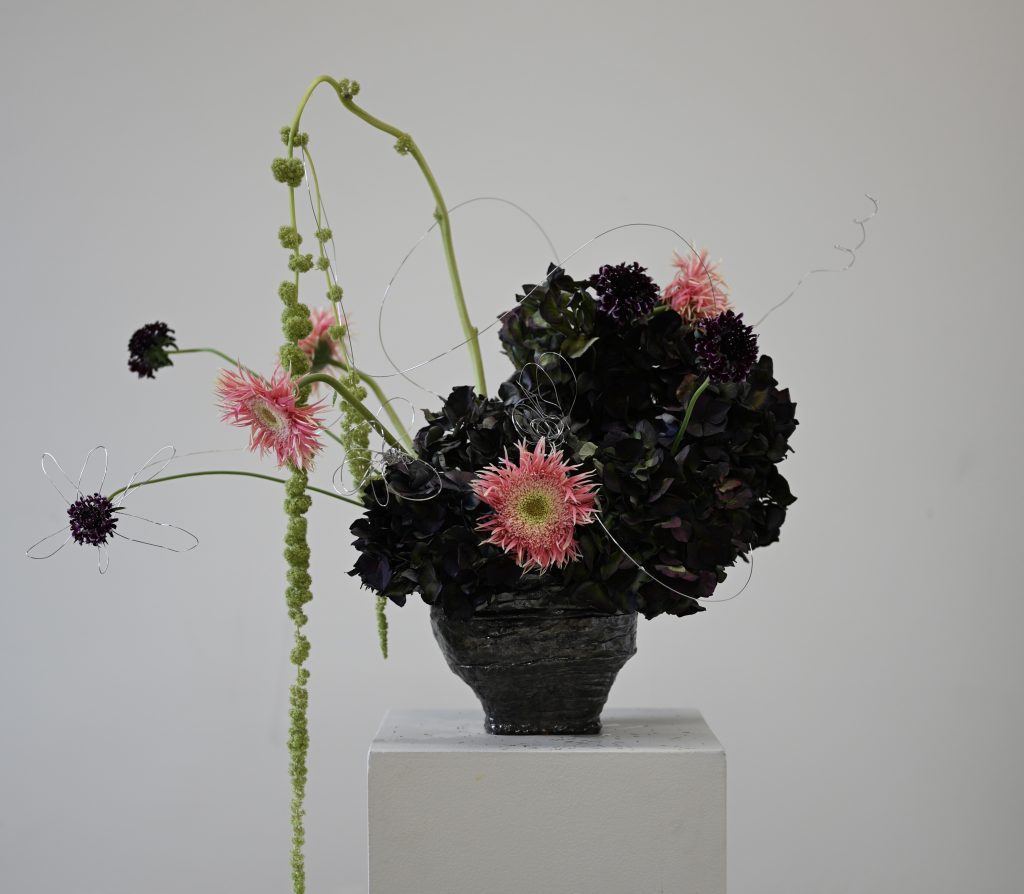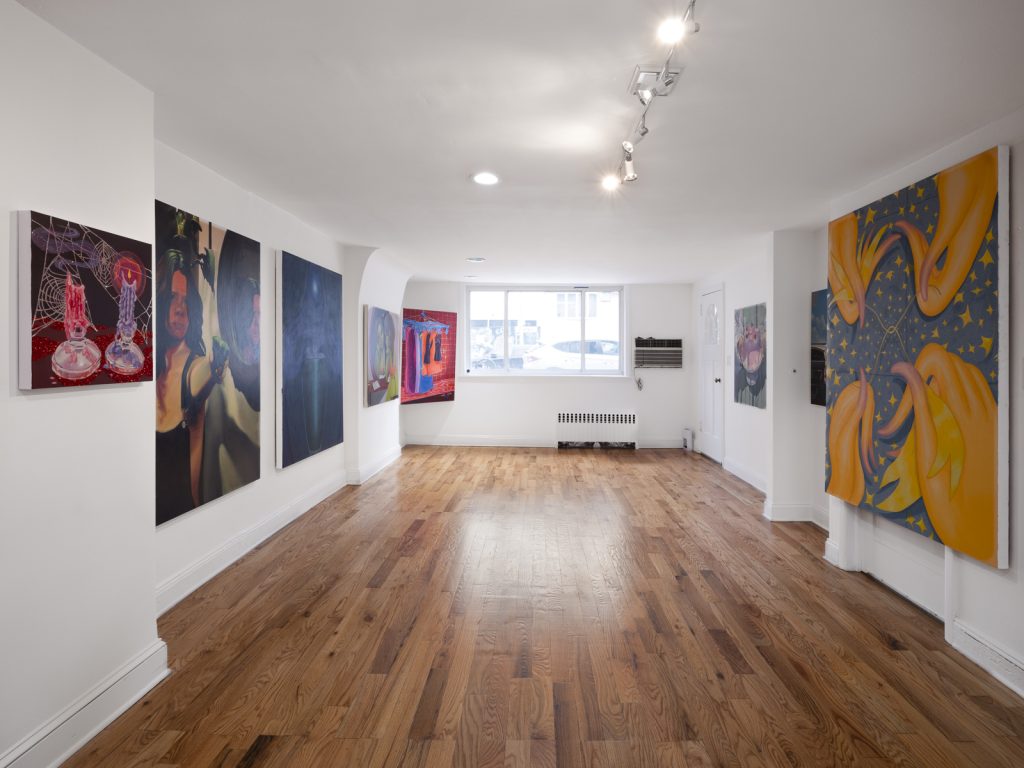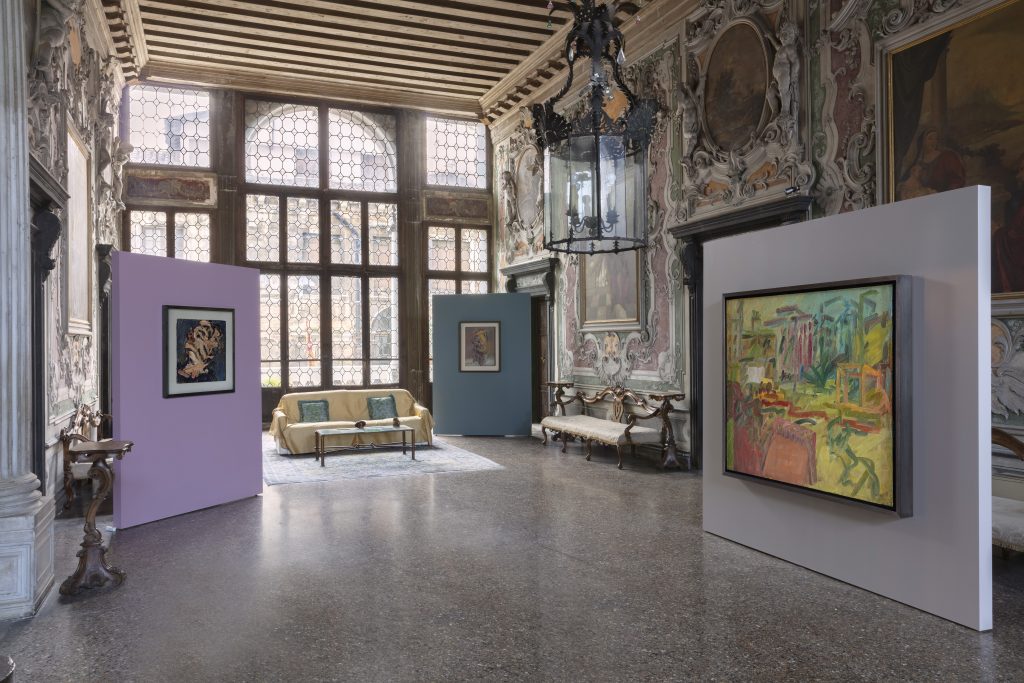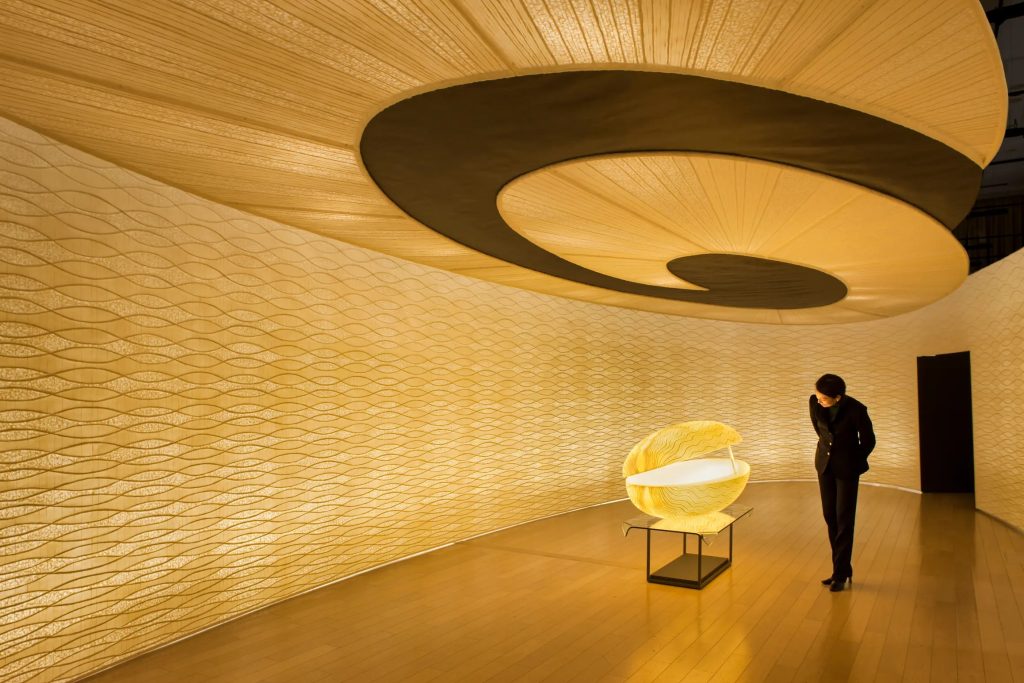Flower Shop Collective Fosters Community For Artists of Color
An “artists for artists” space in Greenpoint, Brooklyn

An intimate, sun-drenched studio in Greenpoint, Brooklyn is the workplace and gathering site for established and up-and-coming artists. It is here, in Flower Shop Collective (FSC), that like-minded and diverse creatives brainstorm ideas, swap skills and discuss ways to decolonize the industry while making use of the multitude of tools offered in the space: for metalworking, sculpting, mold-making, woodworking and more. Founded by Nadia Tahoun and Cesar Kastro, the collective is a membership-based art studio and resource hub focused on creating a more equitable future. It is what Tahoun calls “an artists for artists space,” where each helps the other grow their practice, career and life overall.
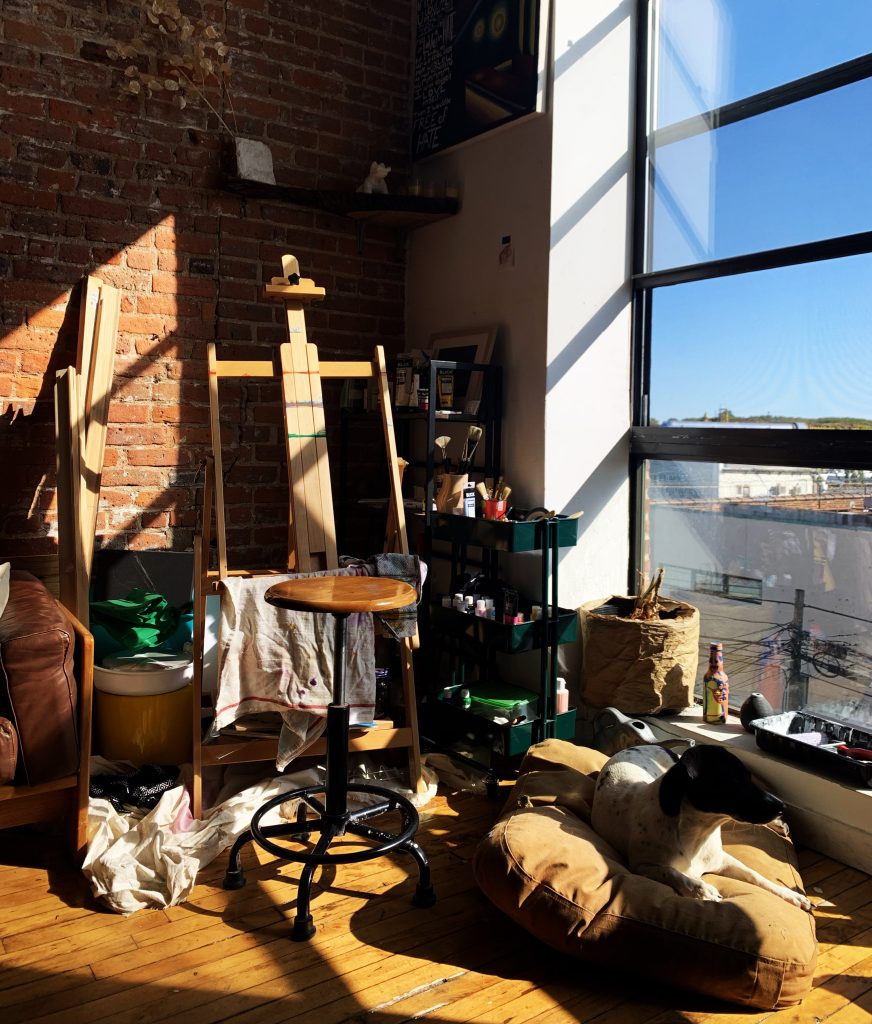
Launched in 2019 as a digital platform and traveling pop-up, FSC began (like all true community hubs) as a scrappy, DIY project—intended to help a friend. “We had a friend who was very instrumental in helping us start Flower Shop Collective, and her name is Jess Bass,” Tahoun tells us. “She needed to get into an MFA program but she had no art background. She didn’t have a BFA or anything like that and she needed to make a CV, and I was like, ‘Let’s just throw shows and then you can just chuck it on your CV.'” From there, the co-founders reached out to different spaces with pitch decks. They landed their first one at NYC hotel Sixty LES in 2019 on Valentine’s Day.
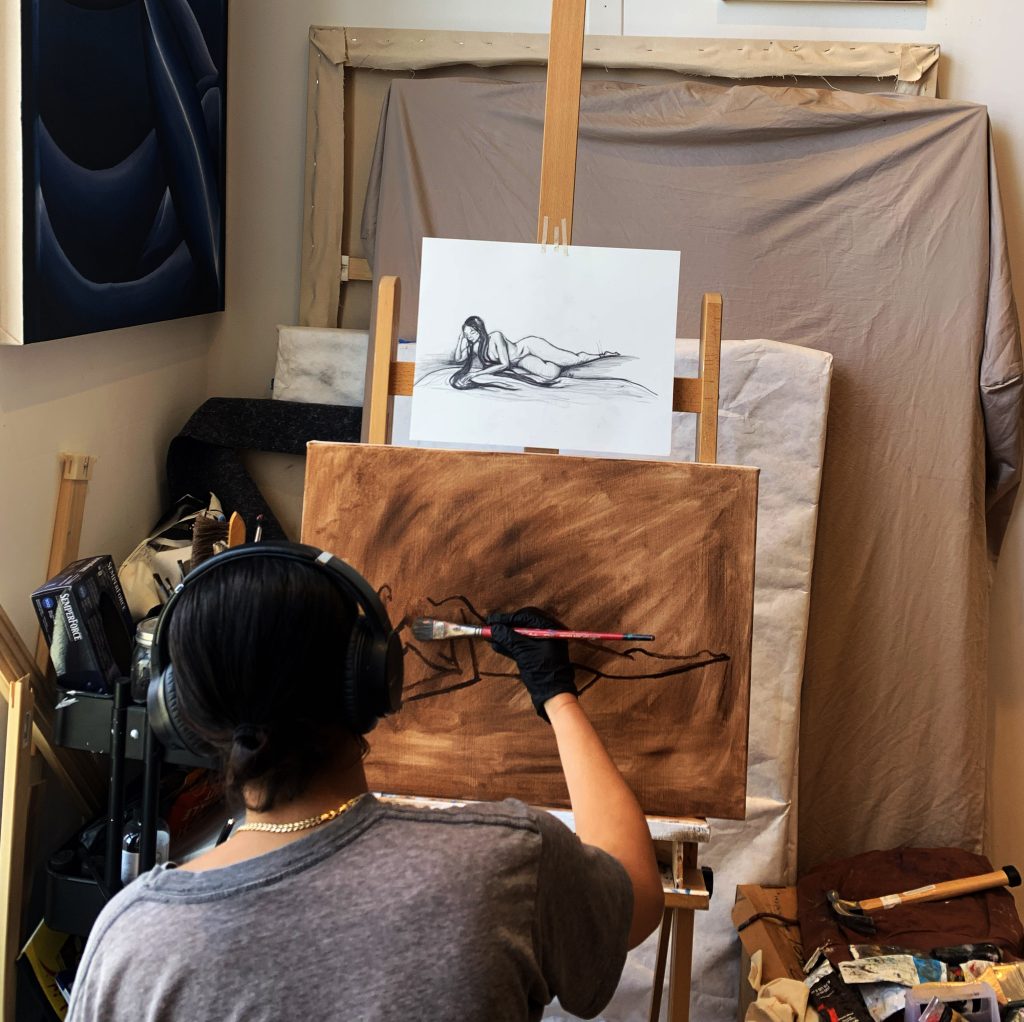
“The hotel in the Lower East Side allowed us to take over their lobby and that’s how our name kind of started. Because it was Valentine’s Day, we asked everyone to make something inspired by flowers, but it turned into Flower Shop Collective because we are centered in Black, Brown, ethnic and immigrant artists. For us, it seems more like we’re a bouquet of a bunch of different experiences,” Tahoun continues.
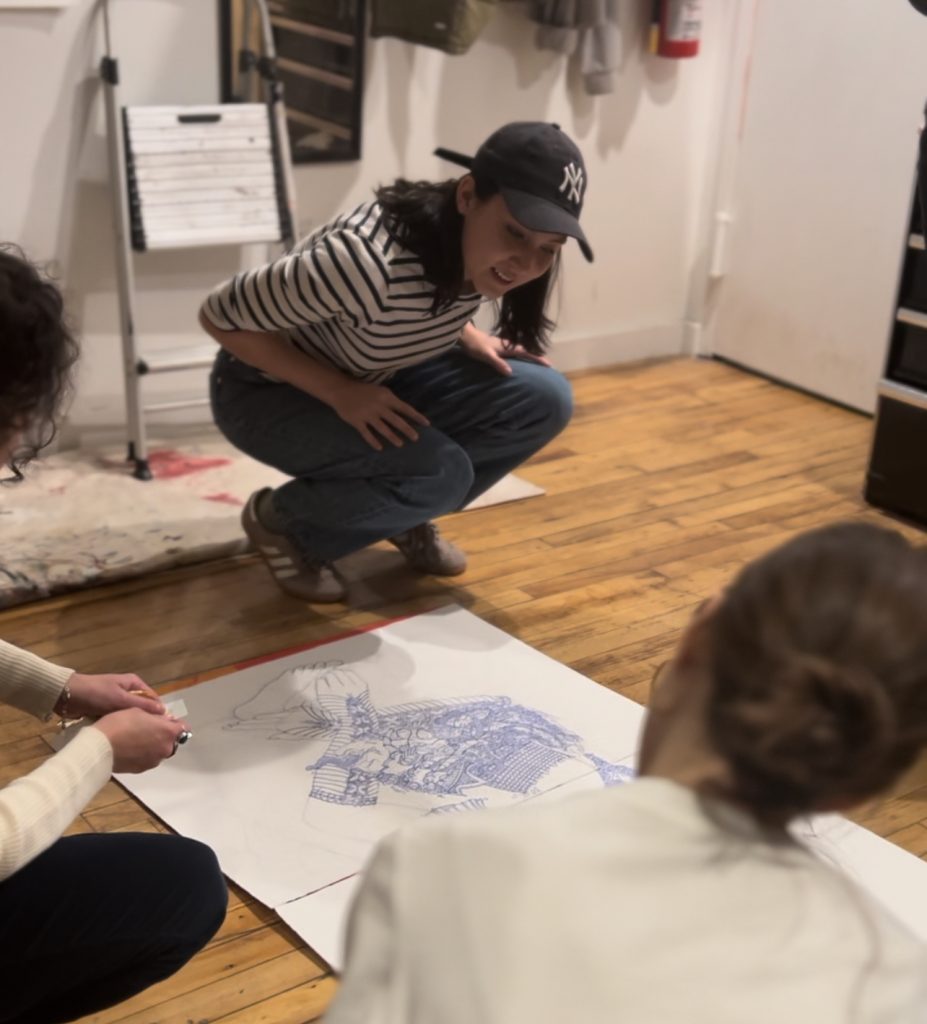
Now, FSC has a physical space in Greenpoint which the duo established in 2020. The natural next step in the collective’s evolution, the brick-and-mortar studio serves their community of artists, acting as a site where they can come together, dedicate time independently to their personal work and utilize a number of fabrication services. The pair thoughtfully decided on the space because of its natural sunlight (which would make it easy to convert into a gallery) and because it felt safe. “It needed to not feel desolate. A majority of our members are women. Will somebody feel safe walking here at two in the morning?” asks Tahoun.
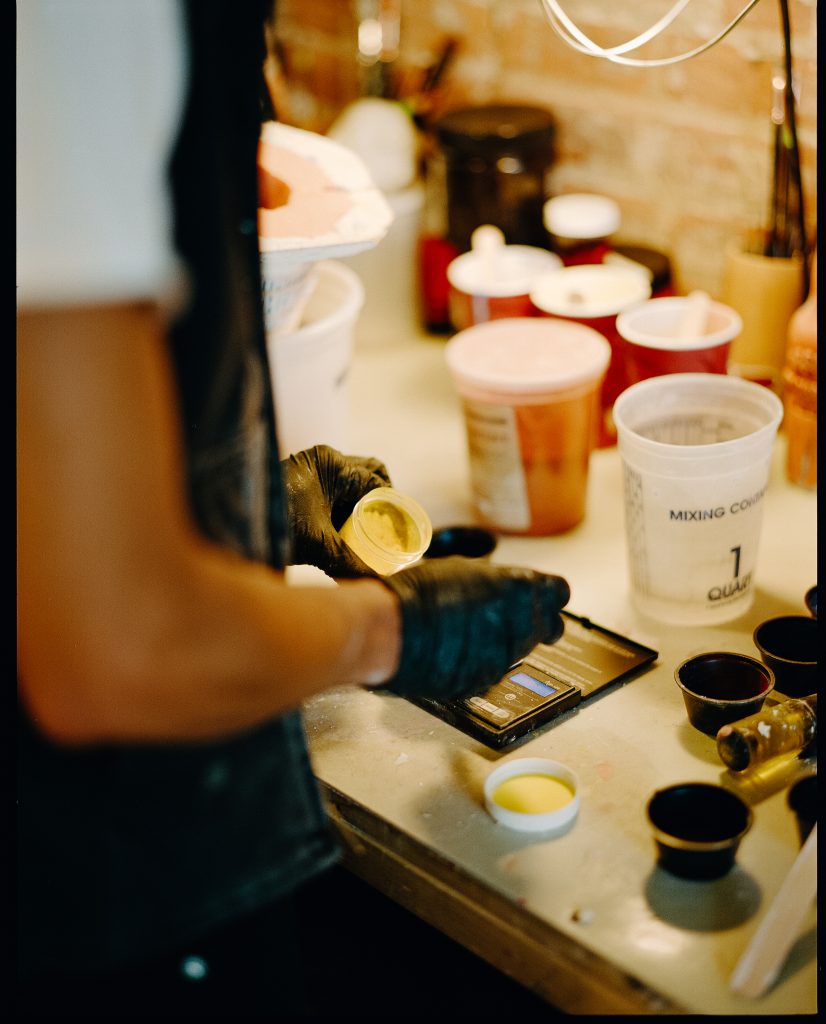
The collective offers two types of sliding-scale memberships. The first, the HQ Membership, provides full 24/7 access to the studio as well as its resources which abound with fabrication options in addition to guidance on artist equity, career growth, resumes and navigating shows. The second membership, the Thoughts + Frameworks Membership, is for those who don’t need a physical space but would like access to these insights on the industry and community.
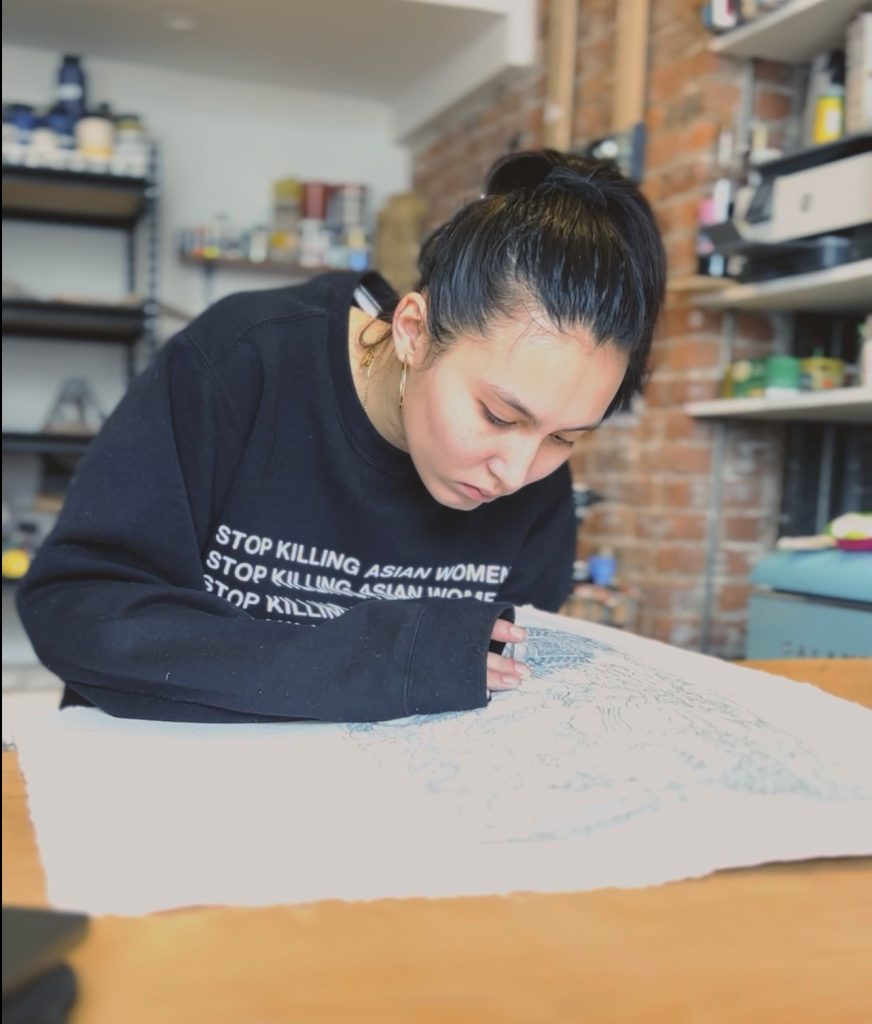
These resources include Critique Night, an event for members (across all tiers) to present their works or works in progress and receive feedback, a process similar to those found in art schools. “Coming from an art background ourselves and a professional art field and having members that have not gone to art school, we share our knowledge and our skills with them,” says Kastro. “Meaning, if they’re painters, we encourage them to go beyond and venture into the 3D world, learn how to write about art. Skill sharing has been a really beautiful part about having a collective.”
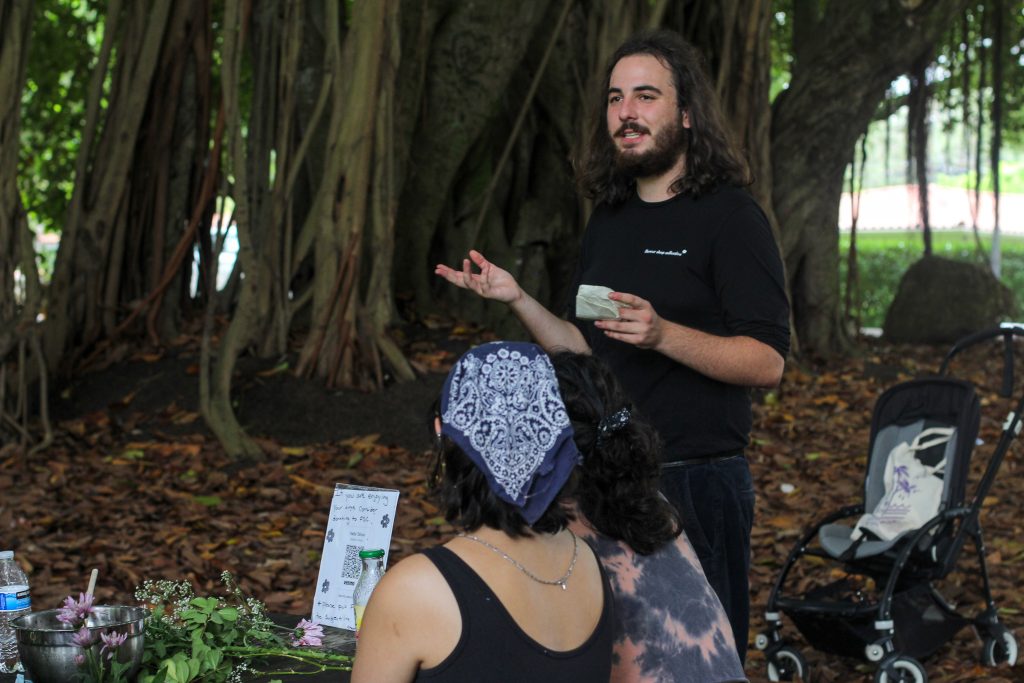
FSC also helps coach people on navigating the space to better advocate for themselves. The service, called Equity Consultation, helps artists price their work and reach their targeted demographic.
The collective truly supports their community, both within their space and outside of it. As well as holding events and talks for their members (like a guided dining and meditation experience in partnership with tea brand The Qi or a workshop on making natural dyes from vegetables in relation to its historical practices in pre-hispanic communities), the co-founders bring art and decolonized approaches to students and New Yorkers
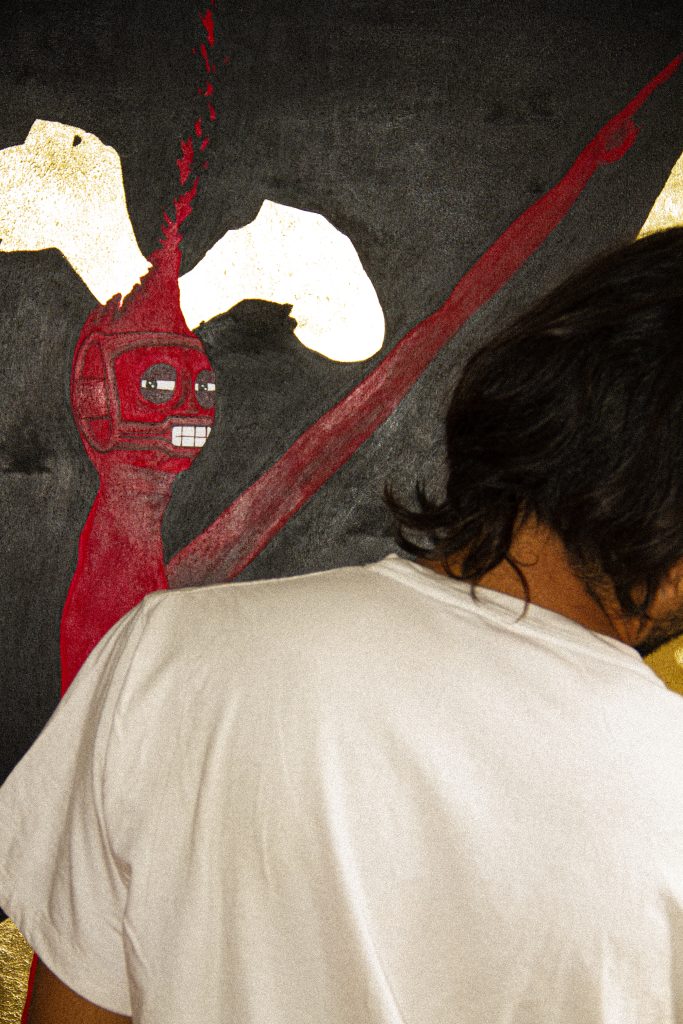
What unites FSC’s community is not only that they are a group of artists, but that they recognize and work against the inequities within the art scene. As Tahoun explains, “The art world and very much the museum spaces were founded as tools for colonialism. They come from cabinets of curiosity. They come from the exploitation of the lands that our ancestors are from and a lot of the ancestors of our members are from. It is really important that as art workers and art laborers that we understand that when we’re engaging in these spaces, and we understand that it is okay to critique those spaces, no matter how powerful that they are or seem to be. At the end of the day, our stance is that if the museum is to exist, then it should be a community space.”
“Colonialism is really what brings us together,” she concludes. “How we engage with capitalism and how we cope with the things that are happening to us or our families… it all plays into art. And that’s in the work that we make here. That’s what we want to center. Art can be a vapid industry. It can be an industry that’s very surface-level and all about how things look, but art is cultural work and the preservation of cultural work is so important in any anti-colonial movement.”
Hero image by Michelle Bardino, courtesy of Flower Shop Collective
